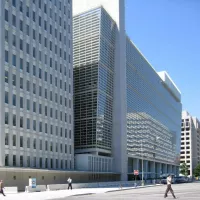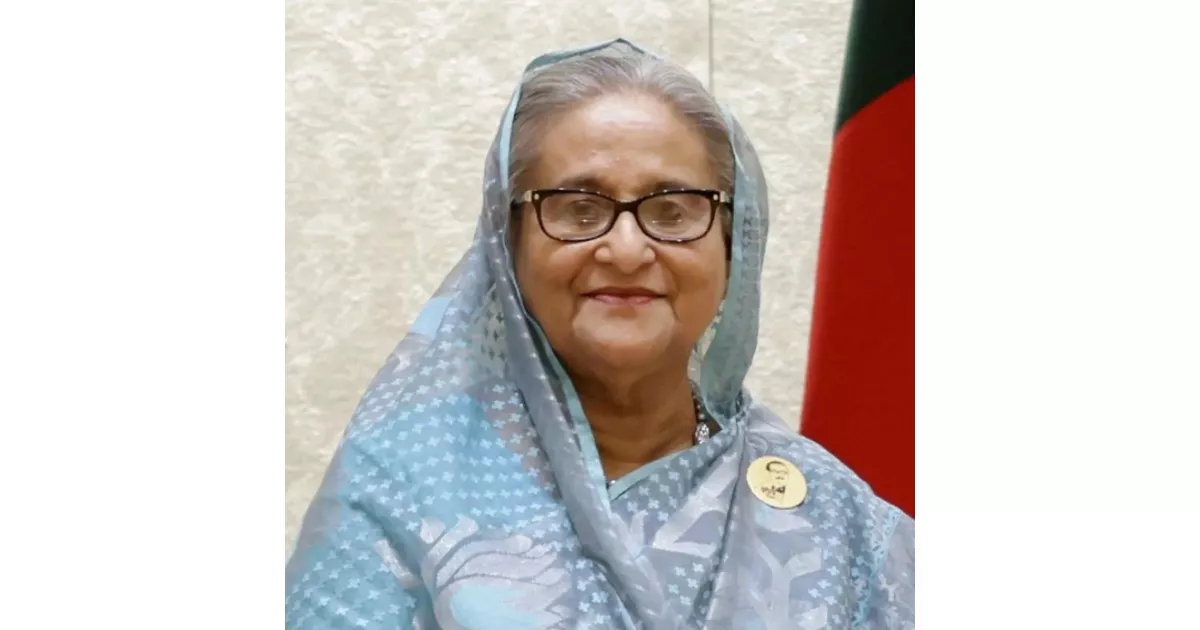How Sheikh Hasina built a successful career. Explore key moments that defined the journey.
Sheikh Hasina Wazed is a Bangladeshi politician who served as the tenth prime minister of Bangladesh from 1996 to 2001 and from 2009 to 2024. Accumulating over 20 years in office, she holds the record for the longest-serving prime minister of Bangladesh since its independence and the longest-serving female head of government globally. Her tenure as prime minister was characterized by dictatorship, oligarchy, and crimes against humanity. She resigned and was exiled to India following the July Revolution in 2024.
1966: Vice President of Student Union
Between 1966 and 1967, Hasina was elected as the Vice President of the Students Union in Eden College.
1971: Forming the International Crimes Tribunal
During her term, Sheikh Hasina's government formed the International Crimes Tribunal to investigate and prosecute suspects involved in the Bangladesh Genocide, committed during the Bangladesh Liberation War in 1971.
February 1981: Elected President of Awami League
After she was elected President of the Bangladesh Awami League on 16 February 1981, Hasina returned home.
1981: Return to Bangladesh and Involvement in Politics
In 1981, Hasina returned to Bangladesh and became involved with the Awami League, eventually being elected as its president.
1981: Elected President of the Awami League
In 1981, while living in exile in India, Hasina was elected President of the Awami League.
1986: Participation in General Election
In 1986, Hasina and the AL participated in the Bangladeshi general election held under President Hussain Muhammad Ershad, with Hasina serving as the leader of the parliamentary opposition in 1986-1987.
1990: Involvement in Pro-Democracy Movement
In 1990, Hasina and the Awami League became involved with the pro-democracy movement against the military rule of Hussain Muhammad Ershad.
1991: BNP Wins Election
In 1991, the parliamentary general election was won by the BNP.
1991: Restoration of Parliamentary Democracy
In 1991, the pro-democracy movement culminated in the restoration of parliamentary democracy in the Bangladeshi general election.
June 1996: First Term as Prime Minister
Hasina served her first term as Prime Minister of Bangladesh from June 1996 to July 2001.
June 1996: AL Wins 146 Seats
In June 1996, the general election was held under a neutral caretaker government, and the AL won 146 seats, a plurality.
December 1997: Signing of the Chittagong Hill Tracts Peace Accord
In December 1997, Hasina's administration signed the Chittagong Hill Tracts Peace Accord, ending the insurgency in the Chittagong Division.
December 1997: Introduction of reserved seats for women
In December 1997, the government introduced three reserved seats for women in all Union Parishad elections.
1997: Fifth Five-Year Plan emphasis and Housing Fund establishment
In 1997, the Fifth Five-Year Plan (1997–2002) was implemented, emphasizing poverty alleviation through credit and training for unemployed youths and women. Also in 1997, a Housing Fund was established to help those homeless due to river erosion.
1998: Completion of Bangabandhu Bridge Mega Project
In 1998, Hasina's government completed the Bangabandhu Bridge mega project.
1999: Approval of National Plan of Action for Children
In 1999, Hasina's cabinet approved the National Plan of Action for Children to ensure rights and improved upbringing.
1999: Adoption of New Industrial Policy
In 1999, the Hasina government adopted the New Industrial Policy (NIP) to strengthen the private sector, attract foreign direct investment, and accelerate globalization. The NIP aimed for 25% of the economy to be industry-based with 20% of the workforce employed in industry, encouraging small, cottage, and labor-intensive industries with a focus on skill development for women, indigenous technology, and local raw materials.
July 2001: End of First Term as Prime Minister
Hasina served her first term as Prime Minister of Bangladesh from June 1996 to July 2001.
July 2001: Succession by Khaleda Zia
In July 2001, Hasina was succeeded by Khaleda Zia.
2001: Defeat in the general election
In the 2001 general election, despite winning 40% of the popular vote, the AL won only 62 seats due to the electoral system, while the BNP-led 'Four Party Alliance' won 234 seats. Hasina rejected the results, alleging the election was rigged. The international community largely accepted the election outcome.
2002: End of Fifth Five-Year Plan
In 2002, at the end of the Fifth Five-Year Plan (1997-2002), food-grain production increased from 19 million tons to 26.5 million tons, and the poverty rate decreased.
2003: Start of major anti-government movement
In late 2003, the Awami League initiated its first major anti-government movement.
April 2004: Declaration of government downfall
In April 2004, the Awami League's general secretary, Abdul Jolil, declared that the government would fall before April 30, 2004.
June 2005: AL Mayor wins election in Chittagong
In June 2005, the incumbent AL Mayor, A. B. M. Mohiuddin Chowdhury, won an important election in Chittagong, which was viewed as a showdown between the opposition and the ruling party.
November 2008: Return to Bangladesh for election
On 6 November 2008, Hasina returned to Bangladesh to contest the 2008 general election scheduled for 29 December under the "Grand Alliance" banner.
December 2008: Announcement of party's election manifesto
On 11 December 2008, Hasina announced her party's election manifesto and vowed to build a "Digital Bangladesh" by 2021.
2008: Second Term as Prime Minister
After her release from jail, Hasina's party won the 2008 election, and she became the prime minister for a second term.
2008: Victory in general election
In 2008, Her Awami League and the Grand Alliance won the general election with a two-thirds majority, securing 230 out of 299 seats.
2008: Grand Alliance success
In 2008, Sheikh Hasina's AL-led Grand Alliance secured 263 parliamentary seats.
January 2009: Swearing in as Prime Minister
On 6 January 2009, Hasina was sworn into office as prime minister for a second term after the Awami League's victory in the 2008 general election.
2009: Awami League runs Bangladesh
Since 2009, Sheikh Hasina's Awami League has been running Bangladesh.
2011: Parliament removes caretaker government law
In 2011, the parliament under Sheikh Hasina removed the law requiring a non-party caretaker government to hold elections. Also in 2011, The Daily Star commended Hasina for preventing further bloodshed during the 2009 Bangladesh Rifles revolt.
2014: Wins second consecutive term
In 2014, Sheikh Hasina secured a second consecutive term in office with her Awami League winning the general election, which was boycotted by opposition parties due to unfair conditions. The AL-led Grand Alliance won 267 seats, 153 of which were uncontested.
March 2017: Commissioning of first submarines
In March 2017, Bangladesh's first two submarines were commissioned under Sheikh Hasina's government.
September 2017: Granting refuge to Rohingya refugees
In September 2017, Sheikh Hasina's government provided refuge and aid to around a million Rohingya refugees and urged Myanmar to end violence against the Rohingya community. She received credit and praise for her actions.
2017: Sheikh Rehana as advisor of Tungipara upazila unit Awami League
In 2017, Sheikh Hasina's only living sibling, Sheikh Rehana, served as the advisor of Tungipara upazila unit Awami League in Gopalganj.
May 2021: Inauguration of Dak Bhaban
In May 2021, Sheikh Hasina provided the inaugural address for the opening of the new headquarters for the Bangladesh Post Office, named the Dak Bhaban, and urged for further development of the postal service in response to the COVID-19 pandemic. The developmental measures outlined included continuing the service's digital transformation, and the construction of cooling units in postal warehouses to pave the way for sending perishable food by mail.
January 2022: Universal Pension Scheme Established
In January 2022, Sheikh Hasina's government passed a law establishing the Universal Pension Scheme, making all Bangladeshi citizens between 18 and 60 years old eligible to receive a monthly stipend.
June 2022: Inauguration of Padma Bridge
The Padma Bridge was eventually constructed with the government's own funds and was inaugurated in June 2022 at a cost of ৳30193.39 crore (US$2.5 billion), exceeding the original projected cost.
2023: Attends G20 New Delhi summit
During the 2023 G20 New Delhi summit, Sheikh Hasina had a bilateral meeting with Indian Prime Minister Narendra Modi to discuss diversifying India-Bangladesh cooperation. She also met with other global leaders.
January 2024: Wins fourth consecutive term
In January 2024, Sheikh Hasina won her fourth consecutive term as her party, the Awami League, secured 224 of the 300 parliamentary seats in an election boycotted by the main opposition. She was inaugurated on January 11.
July 2024: Visit to China
In July 2024, Sheikh Hasina paid an official visit to China at the invitation of Premier Li Qiang. This visit, following one to India a month prior, is seen as an attempt to mediate between China and India.
Mentioned in this timeline

Hillary Diane Rodham Clinton is an American politician lawyer and...
India officially the Republic of India is a South Asian...
Myanmar also known as Burma is a Southeast Asian country...
Germany officially the Federal Republic of Germany is a Western...

The World Bank is an international financial institution offering loans...

News encompasses information about current events disseminated through various media...
Trending
8 months ago Savannah Guthrie and Craig Melvin Temporarily Replaced on Today Show: Here's Why
3 months ago UPS Driver Dies After Train Collision in Hunt County, North Texas

7 months ago Molly Qerim departs ESPN's First Take, shares reason, and flaunts NBA style on social media.

7 months ago Zohran Mamdani's success highlights Jewish divide; Israelis fear New York threat after Iran missiles.

10 months ago Matt Bomer Spotted in London; Nathan Lane Discusses Homophobia in Hollywood.
2 months ago Oklahoma Braces for Continued Cold, Potential Snow; Below Normal Temperatures Expected
Popular

Thomas Douglas Homan is an American law enforcement officer who...

Martin Luther King Jr was a pivotal leader in the...

XXXTentacion born Jahseh Dwayne Ricardo Onfroy was a controversial yet...

Instagram is a photo and video-sharing social networking service owned...

KFC or Kentucky Fried Chicken is an American fast-food chain...

Jupiter is the fifth and largest planet from the Sun...
